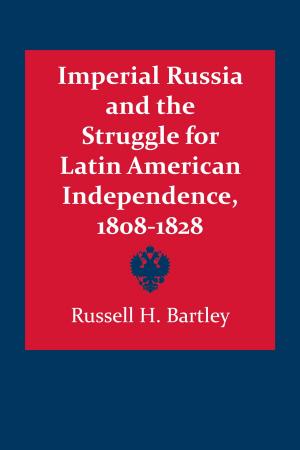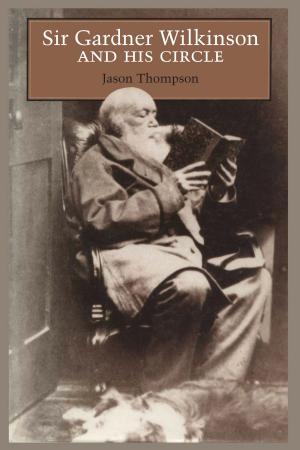The United States and the Atlantic Community
Issues and Prospects
Nonfiction, Social & Cultural Studies, Political Science, International, International Security| Author: | ISBN: | 9780292766440 | |
| Publisher: | University of Texas Press | Publication: | July 3, 2014 |
| Imprint: | University of Texas Press | Language: | English |
| Author: | |
| ISBN: | 9780292766440 |
| Publisher: | University of Texas Press |
| Publication: | July 3, 2014 |
| Imprint: | University of Texas Press |
| Language: | English |
The restiveness among some members of the North Atlantic Treaty Organization as to its structure and functions was an indication not of the failure of NATO, but of a need for a new adjustment to the changes that had developed in world conditions since the organization was established. Such was the consensus underlying the comments of five eminent statesmen and political theorists in a series of lectures delivered at the University of Texas in the spring of 1966 on the general theme of “The United States and the Atlantic Community: Issues and Prospects.” The grave crisis of confidence in the Atlantic Community resulted, ironically, from the success of NATO in combining the resources of thirteen European states with those of Canada and the United States in a common achievement of peace, economic stability, and security in the face of the postwar threat from the Soviet Union. Now that these objectives are obtained, one argument ran, NATO is no longer needed. The Soviet threat still exists, went another, and seems to be dispelled only because of the presence of NATO; what is needed is revision of policies and functions of the organization to fit new conditions. The changes in the nature of international relations in the two decades after World War II were of two kinds: those inherent in the world international situation—the economic recovery of Europe (which brought new urgency to the desire for more independence from the United States), the disintegration of European colonial empires, the softened aspect of the Soviet threat, and the great advances in modern technology; and those that depended upon policy decisions—whether Europe should be a confederacy (as advocated by De Gaulle) or a federal union (as advocated by Jean Monnet) and what should be the international policy of a united Europe on such issues as a third force between the United States and Russia, unified or separate approaches to the East and the West, German unity, and military security. A consideration of what these changes implied for the United States was the purpose of the series of papers collected in this volume. The names of the authors and the titles of their papers indicate the variety of views and interests expressed and the scope of the discussion: Henry A. Kissinger, Professor of Government at Harvard, “NATO: Evolution or Decline” André Philip, Professor of Economics at the Sorbonne, “The Atlantic Economy: Partners and Rivals” Hans Speier, member of the RAND Corporation Council, “Germany: The Continuing Challenge” Fritz Erler, a leader of the German Social Democratic Party, “Western Europe, Eastern Europe, and the Soviet Union” John J. Mccloy, former World Bank president and former U.S. military governor and high commissioner for Germany, “American Interests and Europe’s Future.”
The restiveness among some members of the North Atlantic Treaty Organization as to its structure and functions was an indication not of the failure of NATO, but of a need for a new adjustment to the changes that had developed in world conditions since the organization was established. Such was the consensus underlying the comments of five eminent statesmen and political theorists in a series of lectures delivered at the University of Texas in the spring of 1966 on the general theme of “The United States and the Atlantic Community: Issues and Prospects.” The grave crisis of confidence in the Atlantic Community resulted, ironically, from the success of NATO in combining the resources of thirteen European states with those of Canada and the United States in a common achievement of peace, economic stability, and security in the face of the postwar threat from the Soviet Union. Now that these objectives are obtained, one argument ran, NATO is no longer needed. The Soviet threat still exists, went another, and seems to be dispelled only because of the presence of NATO; what is needed is revision of policies and functions of the organization to fit new conditions. The changes in the nature of international relations in the two decades after World War II were of two kinds: those inherent in the world international situation—the economic recovery of Europe (which brought new urgency to the desire for more independence from the United States), the disintegration of European colonial empires, the softened aspect of the Soviet threat, and the great advances in modern technology; and those that depended upon policy decisions—whether Europe should be a confederacy (as advocated by De Gaulle) or a federal union (as advocated by Jean Monnet) and what should be the international policy of a united Europe on such issues as a third force between the United States and Russia, unified or separate approaches to the East and the West, German unity, and military security. A consideration of what these changes implied for the United States was the purpose of the series of papers collected in this volume. The names of the authors and the titles of their papers indicate the variety of views and interests expressed and the scope of the discussion: Henry A. Kissinger, Professor of Government at Harvard, “NATO: Evolution or Decline” André Philip, Professor of Economics at the Sorbonne, “The Atlantic Economy: Partners and Rivals” Hans Speier, member of the RAND Corporation Council, “Germany: The Continuing Challenge” Fritz Erler, a leader of the German Social Democratic Party, “Western Europe, Eastern Europe, and the Soviet Union” John J. Mccloy, former World Bank president and former U.S. military governor and high commissioner for Germany, “American Interests and Europe’s Future.”















